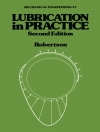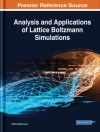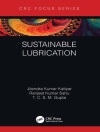This book showcases cutting-edge research papers from the 6th International Conference on Research into Design (ICo RD 2017) – the largest in India in this area – written by eminent researchers from across the world on design process, technologies, methods and tools, and their impact on innovation, for supporting design for communities. While design traditionally focused on the development of products for the individual, the emerging consensus on working towards a more sustainable world demands greater attention to designing for and with communities, so as to promote their sustenance and harmony — within each community and across communities. The special features of the book are the insights into the product and system innovation process, and the host of methods and tools from all major areas of design research for the enhancement of the innovation process. The main benefit of the book for researchers in various areas of design and innovation are access to the latest quality research inthis area, with the largest collection of research from India. For practitioners and educators, it is exposure to an empirically validated suite of theories, models, methods and tools that can be taught and practiced for design-led innovation. The contents of this volume will be of use to researchers and professionals working in the areas on industrial design, manufacturing, consumer goods, and industrial management.
Содержание
Part I: Design Theory and Research Methodology.- Part II: Human factors in Design.- Part III: Design for X (Safety, Manufacture & Assembly, Cost , Reliability etc.).- Part IV: Enabling Technologies & Tools (Computer Aided Conceptual Design, Virtual Reality, Haptics, etc).- Part V : Design Management, Knowledge Management and Product Life Cycle Management , Design Analytics.- Part VI: Applications in Practice (Automotive, Aerospace, Biomedical Devices, MEMS, etc.).- Part VII: Design Collaboration and Communication.
Об авторе
Amaresh Chakrabarti is professor of Engineering Design at Centre for Product Design and Manufacturing, Indian Institute of Science (IISc), Bangalore. He holds a BE in Mechanical Engineering from Univ. of Calcutta (now IIEST), India, an ME in Mechanical Design from IISc, and a Ph D in Engineering Design from University of Cambridge, UK. After Ph D, he led for ten years the Design Synthesis team at the EPSRC Centre for Excellence Engineering Design Centre at the University of Cambridge. His interests are in design synthesis and creativity, eco-design and sustainability, and product informatics. He has authored/edited 10 books, over 250 peer-reviewed articles, and has 6 patents granted/pending. He co-authored DRM, a methodology used widely as a framework for doing engineering design research. He is an Associate Editor, AI EDAM, Area Editor, Research in Engineering Design (Springer), Regional Editor, Journal for Remanufacturing (Springer), and Advisory Editor for 7 international journals including Journal of Engineering Design, Clean Technologies and Environmental Policy (Springer), and International Journal of Design Creativity and Innovation. Professor Chakrabarti has been on the Advisory Board of Design Society, UK, where he is currently a member of the Board of Management, member of the CII National Committee on Design, India, and member of the Jury for India Design Mark, India Design Council. He founded IDea SLab – the first laboratory in India for research into design creativity, sustainability and innovation. He is Chair for International Conferences on Research into Design (ICo RD), 22nd CIRP Design Conference (CIRP Design 2012), 3rd International Conference on Design Creativity (3rd ICDC 2015), and vice-Chair for AI in Design (AID) and Design Computing and Cognition (DCC) Conferences. He is an Honorary Fellow of the Institution of Engineering Designers, the peer society under the UK Royal Charter in engineering design. Seven of his papers won top paper awards in various international conferences.
Debkumar Chakrabarti is professor in department of design at Indian Institute of Technology Guwahati, India. He holds a BSc. (honours) in Human Physiology, MSc. in Human Physiology with specialisation in Ergonomics and Work Physiology and a Ph D in Science from Univ. of Calcutta, India. Dr. Chakrabarti has over 30 years of teaching experience with various capacities covering various aspects of Ergonomics/Human Factors and Design at Various levels. His areas of research are Ergonomics and Human Factors Fundamentals; Usability and Human Compatibility Factors; Design Ergonomics and Human- Product-Environment interface system; Cognitive perception and interaction ergonomics; Occupational health and safety; and Participatory Ergonomics and training. Dr. Chakrabarti has 93 publications/reports in Journals, Conferences, Technical reports and books to his credit.












